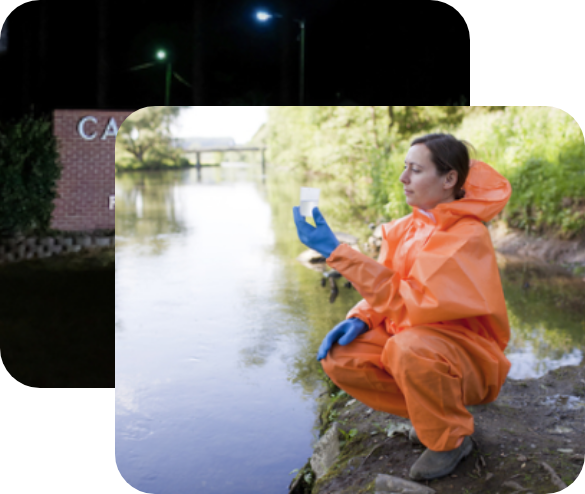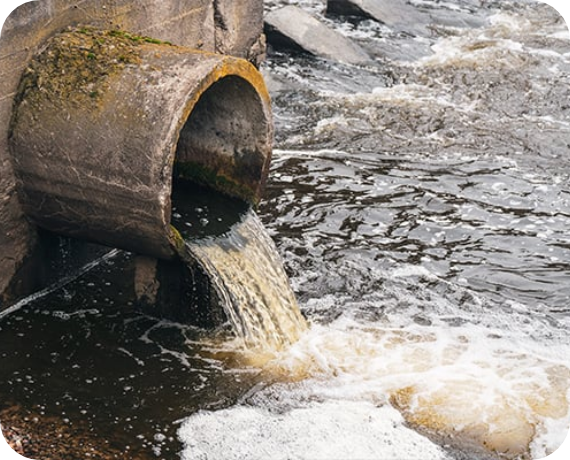
“ We have a responsibility to take care of those who have served our nation and have been exposed to harm as a result of that service,“
– Secretary Robert A. McDonald

Reported By:





Contaminated Water At Camp Lejeune Is Responsible For :
You may entitled to seek significant financial compensation for toxic water exposure if you were diagnosed with any of the health conditions or illness listed below and you served in active duty resided or served at Base Camp Lejeune between 1953 and 1987.
Breathing small amounts may cause headaches, lung irritation, dizziness, poor coordination, and difficulty concentrating.
Breathing large amounts of trichloroethylene may cause impaired heart function, unconsciousness, and death. Breathing it for long periods may cause nerve, kidney, and liver damage.
Drinking large amounts of trichloroethylene may cause nausea, liver damage, unconsciousness, impaired heart function, or death.
Drinking small amounts of trichloroethylene for long periods may cause liver and kidney damage, impaired immune system function, and impaired fetal development in pregnant women, although the extent of some of these effects is not yet clear.
Skin contact with trichloroethylene for short periods may cause skin rashes.
Some studies with mice and rats have suggested that high levels of trichloroethylene may cause liver, kidney, or lung cancer. Some studies of people exposed over long periods to high levels of trichloroethylene in drinking water or in workplace air have found evidence of increased cancer. Although, there are some concerns about the studies of people who were exposed to trichloroethylene, some of the effects found in people were similar to effects in animals.
In its 9th Report on Carcinogens, the National Toxicology Program (NTP) determined that trichloroethylene is “reasonably anticipated to be a human carcinogen.” The International Agency for Research on Cancer (IARC) has determined that trichloroethylene is “probably carcinogenic to humans.”
High concentrations of tetrachloroethylene (particularly in closed, poorly ventilated areas) can cause dizziness, headache, sleepiness, confusion, nausea, difficulty in speaking and walking, unconsciousness, and death.
Irritation may result from repeated or extended skin contact with it. These symptoms occur almost entirely in work (or hobby) environments when people have been accidentally exposed to high concentrations or have intentionally used tetrachloroethylene to get a “high.”
In industry, most workers are exposed to levels lower than those causing obvious nervous system effects. The health effects of breathing in air or drinking water with low levels of tetrachloroethylene are not known.
Results from some studies suggest that women who work in dry cleaning industries where exposures to tetrachloroethylene can be quite high may have more menstrual problems and spontaneous abortions than women who are not exposed. However, it is not known if tetrachloroethylene was responsible for these problems because other possible causes were not considered.
Results of animal studies, conducted with amounts much higher than those that most people are exposed to, show that tetrachloroethylene can cause liver and kidney damage. Exposure to very high levels of tetrachloroethylene can be toxic to the unborn pups of pregnant rats and mice. Changes in behavior were observed in the offspring of rats that breathed high levels of the chemical while they were pregnant.
The Department of Health and Human Services (DHHS) has determined that tetrachloroethylene may reasonably be anticipated to be a carcinogen. Tetrachloroethylene has been shown to cause liver tumors in mice and kidney tumors in male rats.
Breathing high levels of vinyl chloride can cause you to feel dizzy or sleepy. Breathing very high levels can cause you to pass out, and breathing extremely high levels can cause death.
Some people who have breathed vinyl chloride for several years have changes in the structure of their livers. People are more likely to develop these changes if they breathe high levels of vinyl chloride. Some people who work with vinyl chloride have nerve damage and develop immune reactions. The lowest levels that produce liver changes, nerve damage, and immune reaction in people are not known. Some workers exposed to very high levels of vinyl chloride have problems with the blood flow in their hands. Their fingers turn white and hurt when they go into the cold.
The effects of drinking high levels of vinyl chloride are unknown. If you spill vinyl chloride on your skin, it will cause numbness, redness, and blisters.
Animal studies have shown that long-term exposure to vinyl chloride can damage the sperm and testes.
The U.S. Department of Health and Human Services has determined that vinyl chloride is a known carcinogen. Studies in workers who have breathed vinyl chloride over many years showed an increased risk of liver, brain, lung cancer, and some cancers of the blood have also been observed in workers.
Breathing high levels of 1,2-dichloroethene can make you feel nauseous, drowsy, and tired; breathing very high levels can kill you.
When animals breathed high levels of trans-1,2-dichloroethene for short or longer periods of time, their livers and lungs were damaged and the effects were more severe with longer exposure times. Animals that breathed very high levels of trans-1,2-dichloroethene had damaged hearts.
Animals that ingested extremely high doses of cis- or trans-1,2-dichloroethene died.
Lower doses of cis-1,2-dichloroethene caused effects on the blood, such as decreased numbers of red blood cells, and also effects on the liver.
The long-term (365 days or longer) human health effects after exposure to low concentrations of 1,2-dichloroethene aren’t known. One animal study suggested that an exposed fetus may not grow as quickly as one that hasn’t been exposed.
Exposure to 1,2-dichloroethene hasn’t been shown to affect fertility in people or animals.
The EPA has determined that cis-1,2-dichloroethene is not classifiable as to its human carcinogenicity.
No EPA cancer classification is available for trans-1,2-dichloroethene.
Breathing very high levels of benzene can result in death, while high levels can cause drowsiness, dizziness, rapid heart rate, headaches, tremors, confusion, and unconsciousness. Eating or drinking foods containing high levels of benzene can cause vomiting, irritation of the stomach, dizziness, sleepiness, convulsions, rapid heart rate, and death.
The major effect of benzene from long-term exposure is on the blood. Benzene causes harmful effects on the bone marrow and can cause a decrease in red blood cells leading to anemia. It can also cause excessive bleeding and can affect the immune system, increasing the chance for infection.
Some women who breathed high levels of benzene for many months had irregular menstrual periods and a decrease in the size of their ovaries, but we do not know for certain that benzene caused the effects. It is not known whether benzene will affect fertility in men.
Long-term exposure to high levels of benzene in the air can cause leukemia, particularly acute myelogenous leukemia, often referred to as AML. This is a cancer of the blood forming organs. The Department of Health and Human Services (DHHS) has determined that benzene is a known carcinogen. The International Agency for Research on Cancer (IARC) and the EPA have determined that benzene is carcinogenic to humans.
Toluene may affect the nervous system. Low to moderate levels can cause tiredness, confusion, weakness, drunken-type actions, memory loss, nausea, loss of appetite, and hearing and color vision loss. These symptoms usually disappear when exposure is stopped.
Inhaling High levels of toluene in a short time can make you feel light-headed, dizzy, or sleepy. It can also cause unconsciousness, and even death.
High levels of toluene may affect your kidneys.
Studies in humans and animals generally indicate that toluene does not cause cancer.
The EPA has determined that the carcinogenicity of toluene cannot be classified.
Camp Lejeune Water Contamination Timeline
Construction of Camp Lejeune, named in honor of the 13th Commandant of the U.S. Marine Corps, John A. Lejeune, begins in Onslow County, North Carolina. It includes the early housing development, Hadnot Point, and the Hadnot Point water system. The Hadnot Point water system is the first of two water systems on the base recognized as causing the Camp Lejeune water contamination disaster.
The housing development, Tarawa Terrace, begins operations, including its water treatment system, the second of the two systems that became contaminated.
This is the year Hadnot Point's drinking water system was affected by toxic chemicals. The contamination primarily resulted from leaking underground storage tanks as well as oil and other waste disposed of improperly, according to the Agency for Toxic Substances and Disease Registry (ATSDR).
According to ATSDR, the Tarawa Terrace water treatment system is contaminated by toxins from the neighboring business ABC One-Hour Cleaners.

When did Camp Lejeune
Water get Contaminated?
Service memeber and their families stationed at a military facility in North Carolina for more than 30 years unknowingly drank and took showers in water that was tainted with dangerous chemicals. Camp Lejeune in Jacksonville, North Carolina, examine its water supply for environment pollutants in the 1980s. The base discovered substances like benzene,vinyl chloride, tricholoroethylene, and tetrachloroethylene. These poisons, according to ,raise the chance of a number of malignancies, congenital disorders, and Parkinson’s disease. Over a million people called Camp Lejeune home at the time of contamination.
“ In 1982, testing of drinking water began at U.S. Marine Corps (USMC) Base Camp Lejeune, North Carolina. The tests showed pollution in the drinking water at same housing. The water had chemiccals called volatile organic compounds (VOCs). VOCs are used to clean machinery and weapons and in dry cleaning“
-ATSDR, Agency fot Toxic Substances & disease Registry
Did you work, Live or Serve at Camp Lejeune? If so you may be entitled to a large cash settlement :

